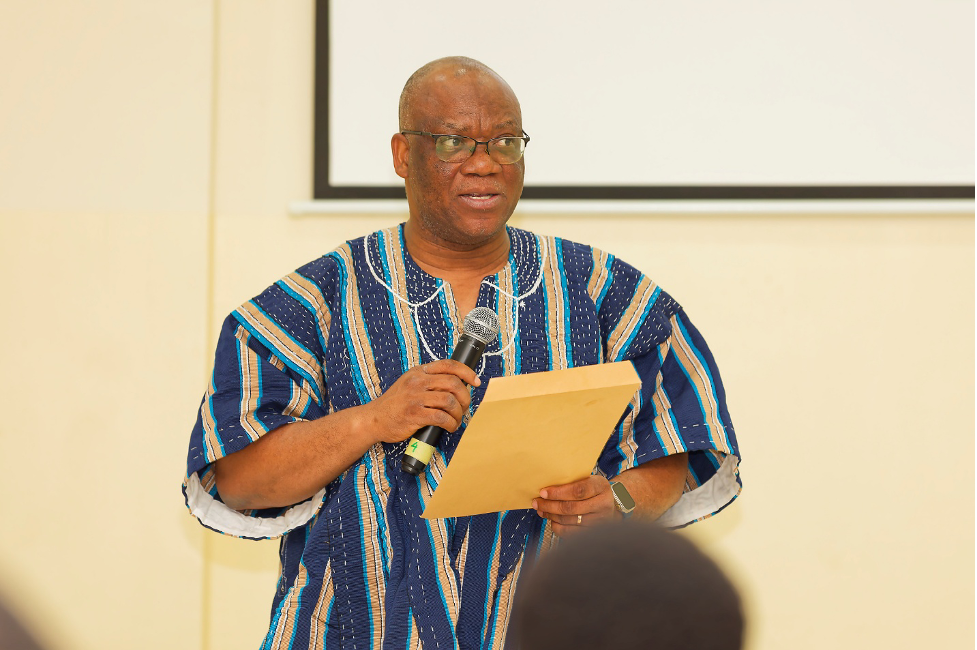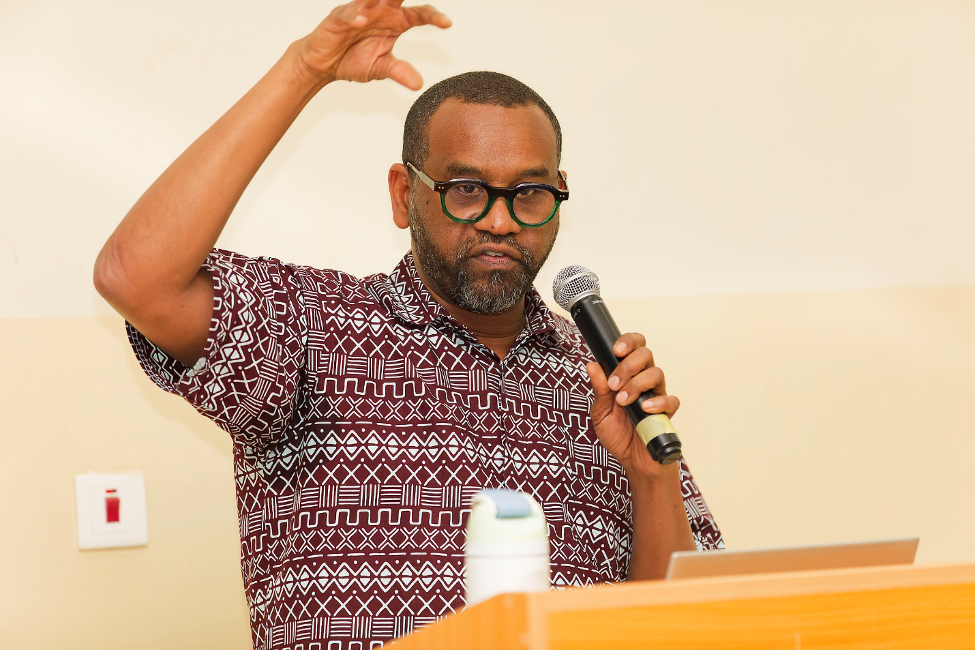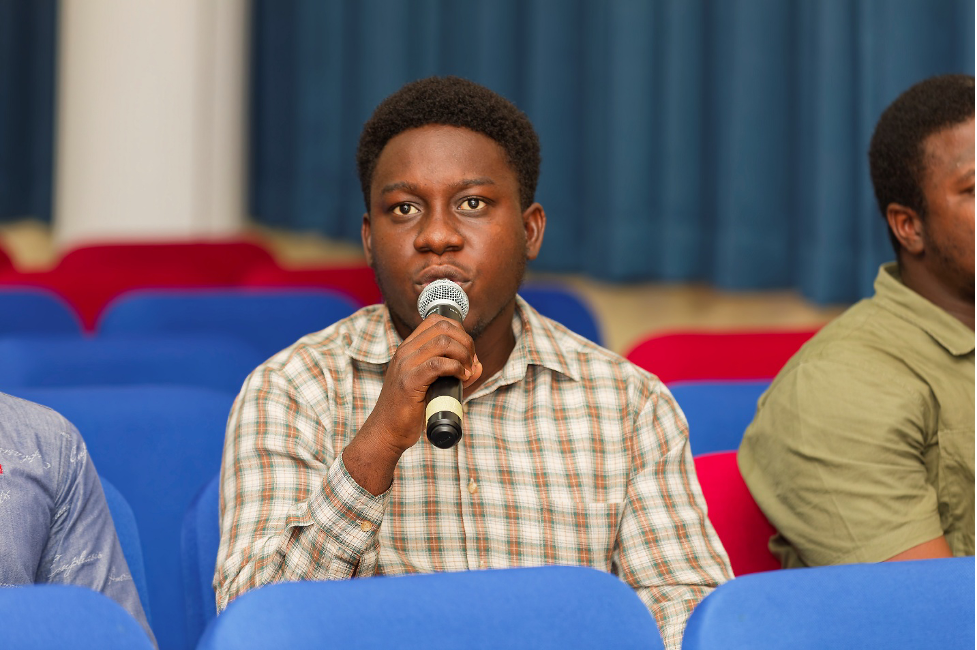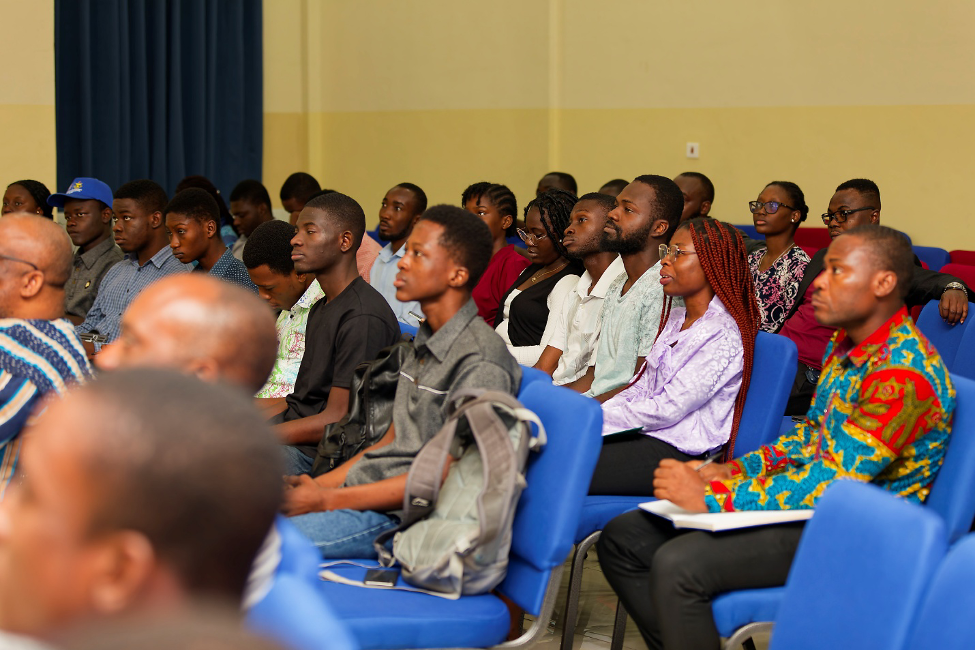As part of its Responsible AI Series, the Responsible Artificial Intelligence Lab (RAIL) hosted a public lecture by Prof. Yousif Hassan, a Professor at the University of Michigan. Held at the TRECK Auditorium, the lecture titled Fixing Development with Data: Responsible AI and State Building in Africa drew a diverse audience of students and professionals interested in how artificial intelligence (AI) can shape Africa’s development future.

In his remarks, Prof. Jerry John Kponyo, PI and Scientific Director of RAIL, welcomed participants and introduced the guest speaker, setting the tone for what he described as a “critical and necessary” conversation. He explained that while AI has sparked global excitement, much of the scholarship and policy around its ethical use have largely excluded voices from the Global South. He emphasised the need for frameworks that reflect African values, systems, and aspirations. Prof. Kponyo then summarised Prof. Hassan’s background, noting his interdisciplinary expertise in engineering, public policy, science and technology studies and his past research roles at Harvard, Illinois, and York University.

Prof. Yousif Hassan began his lecture by reflecting on his transition from engineering into policy and social science, describing it as a personal journey to understand how the tools we build are shaped by the values we hold. He encouraged the audience, particularly the many engineering students present, to look beyond numbers and logic and consider technology’s cultural, social, and political dimensions.
Prof. Hassan challenged the dominant narrative that Africa is behind in the AI race due to a lack of capacity. He described this as a deficit model that obscures the many creative, locally driven innovations emerging across the continent. Drawing from research and fieldwork, he pointed to examples such as AI startups in Kenya focused on agriculture and election monitoring, language models tailored to African languages, and civic tech platforms like BookIT that are reimagining how data can serve citizens.
He also argued that the notion of responsible AI cannot be divorced from context. Whereas Western corporations define it in terms of privacy, fairness, and compliance, African scholars and communities are increasingly calling for responsible AI that is culturally sensitive, socially embedded, and politically accountable. He emphasised that Africa cannot afford to be a passive consumer of imported technologies. Instead, the continent must position AI as part of its state-building efforts, rooted in its languages, institutions, and communal philosophies such as Ubuntu.
Prof. Hassan also raised concerns about data sovereignty, highlighting the vulnerability of nations that store public data in foreign-controlled systems. He called for investments in local and regional infrastructure, especially data centres, while acknowledging the need for lightweight, low-cost AI models operating in environments with limited resources. Throughout the lecture, he reminded participants that decolonising AI is not just about replacing technology but transforming the values, ownership structures, and power dynamics that shape how it is designed and used.

Students asked about how African innovators can access funding, how to protect intellectual property rights in an era of open AI models, and how to make AI tools accessible to populations with low digital literacy during the Q&A session. One computer engineering student proposed using federated learning and model optimisation as a cost-effective alternative to investing in expensive infrastructure. Prof. Hassan welcomed the idea and used it to reiterate the importance of local solutions to local problems.
Another participant asked how African communities could develop shared ownership of data, prompting Prof. Hassan to speak about community-based data trusts and alternative licensing models created by African institutions. He also addressed the importance of African governments engaging multilaterally with tech giants while safeguarding national interests. “Rather than isolating themselves from the global AI ecosystem”, he said, “African states must negotiate from a place of strength and principle, ensuring that technological partnerships reflect their development priorities.”

In his closing remarks, Prof. Kponyo commended Prof. Hassan for delivering an insightful and timely lecture. He emphasised that the talk stirred participants’ curiosity and a sense of responsibility.